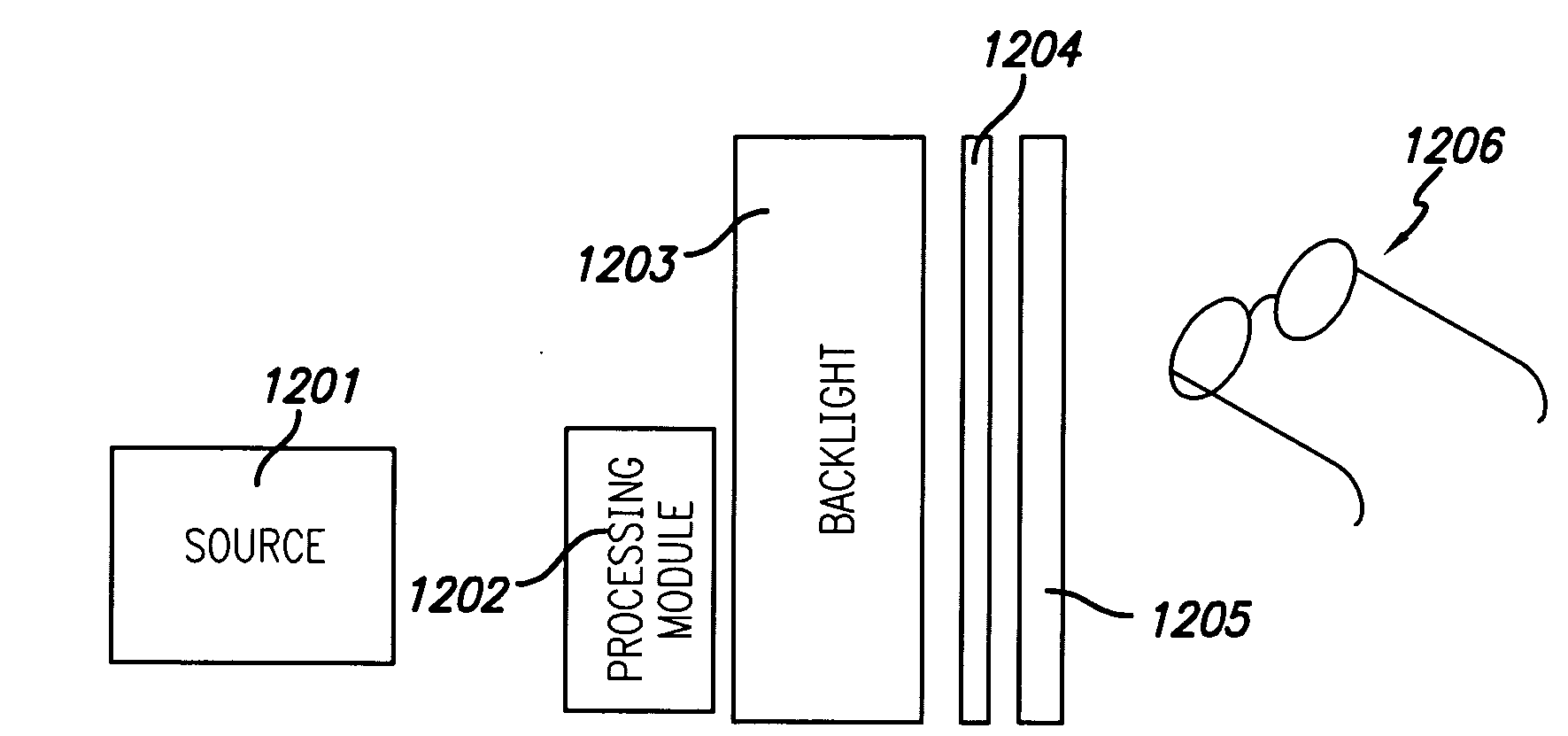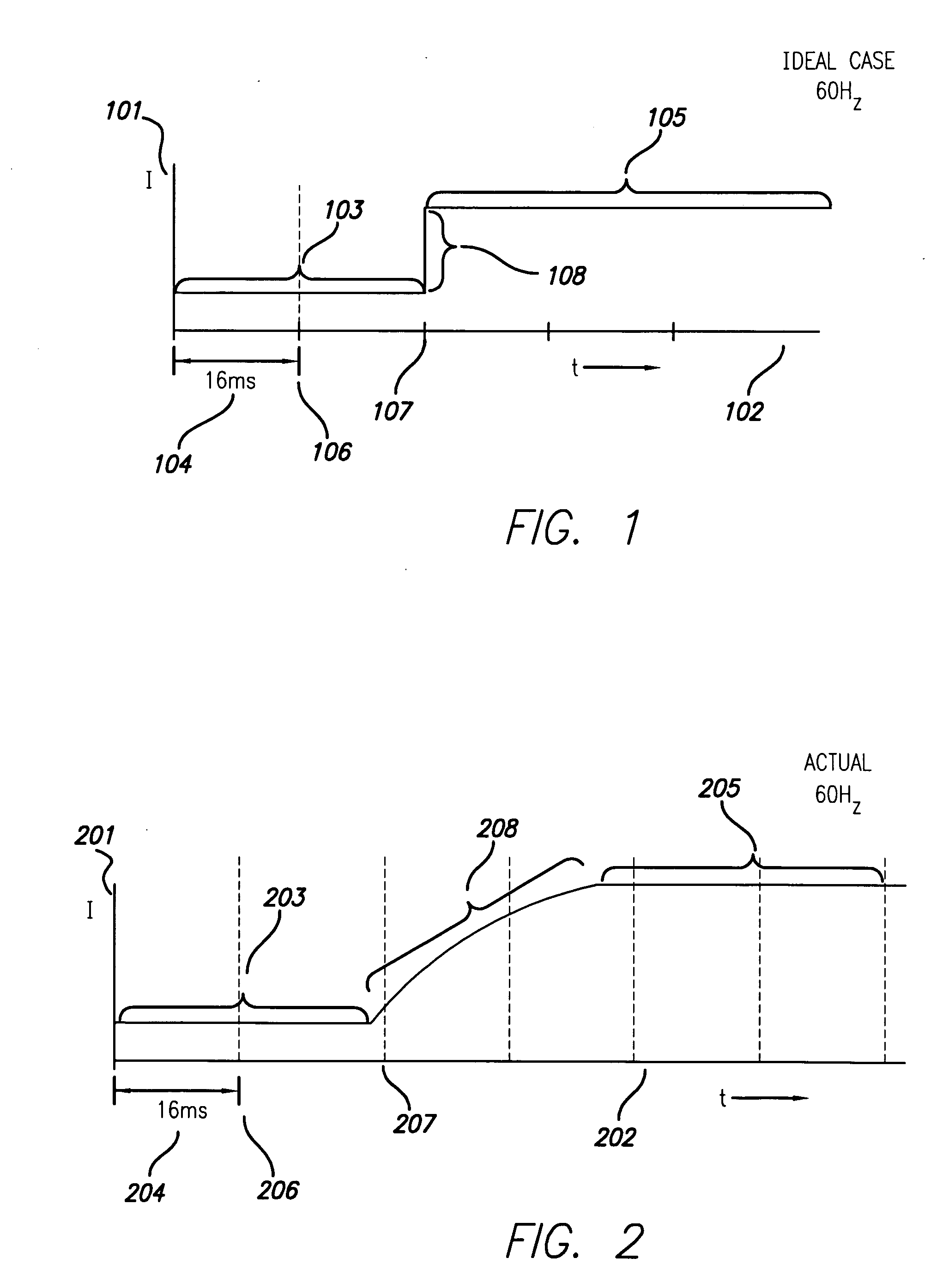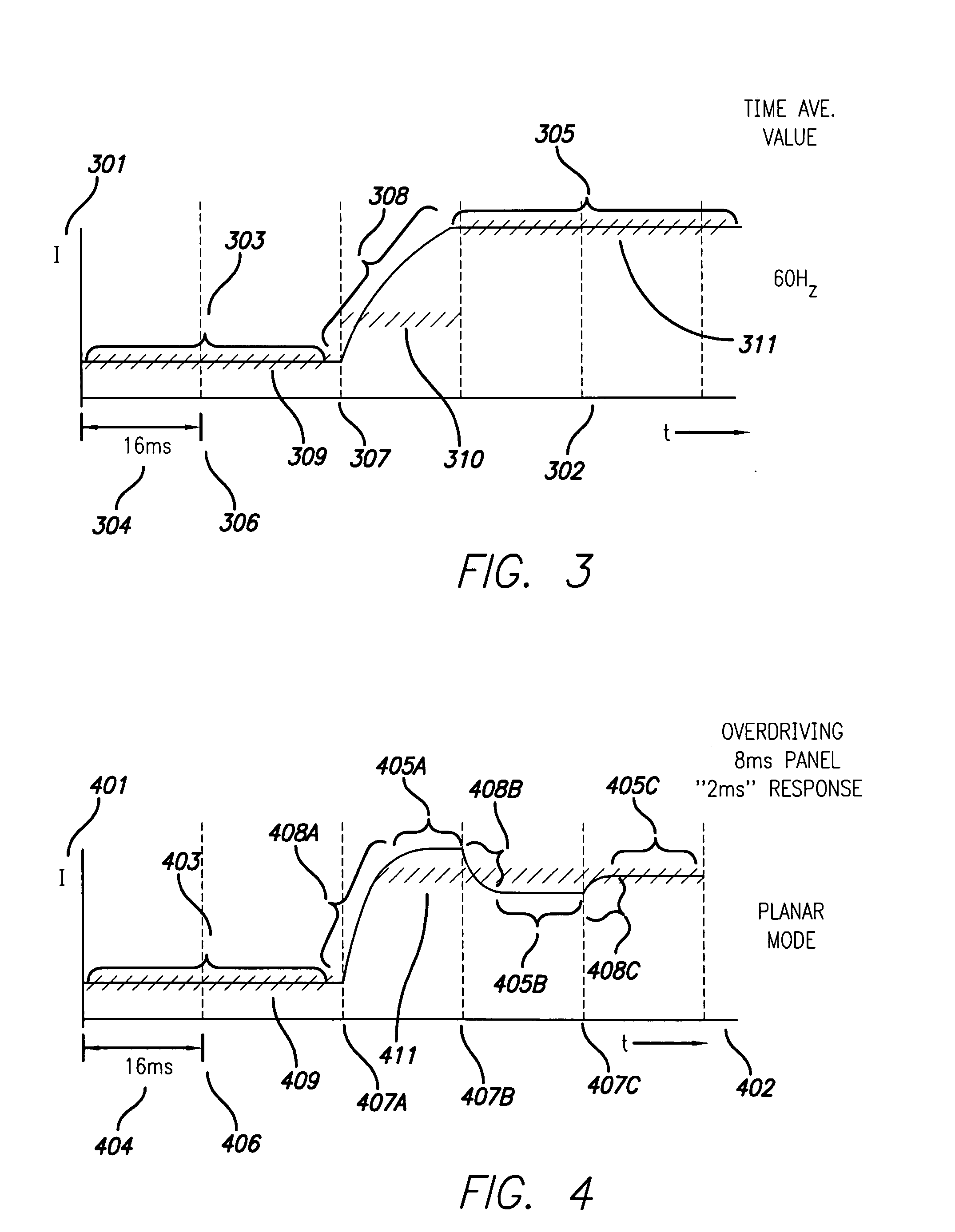Display Device
a liquid crystal display and display device technology, applied in the field of displays, can solve the problems of not having the response time required to provide a high quality image, image that is less than ideal, and the display of stereoscopic images is not easy to achiev
- Summary
- Abstract
- Description
- Claims
- Application Information
AI Technical Summary
Benefits of technology
Problems solved by technology
Method used
Image
Examples
Embodiment Construction
[0028]FIG. 1 represents the ideal representation of a perfect display. What we show in this drawing is the axis 101 which represents the pixel intensity, and axis 102 which represents time. In this drawing you see the dotted lines 106 and 107. Those dotted lines describe the frame update intervals. That is, every 16-millisecond interval, as noted by 104, the display is updated to show a new pixel value. In this figure, FIG. 1, we show that during the interval marked by 103 the pixel is of one value, and when the display is updated at time location 107 the pixel will assume a new value shown by the interval 105. In the ideal world, the pixel will change instantaneously as shown by the vertical slope at 108. This is an ideal case, where in an ideal “perfect-world” display a pixel will hold one value and as soon as the pixel is updated it will instantaneously go to its new value and maintain that value.
[0029]FIG. 2 shows that in a real-world implementation of liquid crystal devices, th...
PUM
 Login to View More
Login to View More Abstract
Description
Claims
Application Information
 Login to View More
Login to View More - R&D
- Intellectual Property
- Life Sciences
- Materials
- Tech Scout
- Unparalleled Data Quality
- Higher Quality Content
- 60% Fewer Hallucinations
Browse by: Latest US Patents, China's latest patents, Technical Efficacy Thesaurus, Application Domain, Technology Topic, Popular Technical Reports.
© 2025 PatSnap. All rights reserved.Legal|Privacy policy|Modern Slavery Act Transparency Statement|Sitemap|About US| Contact US: help@patsnap.com



